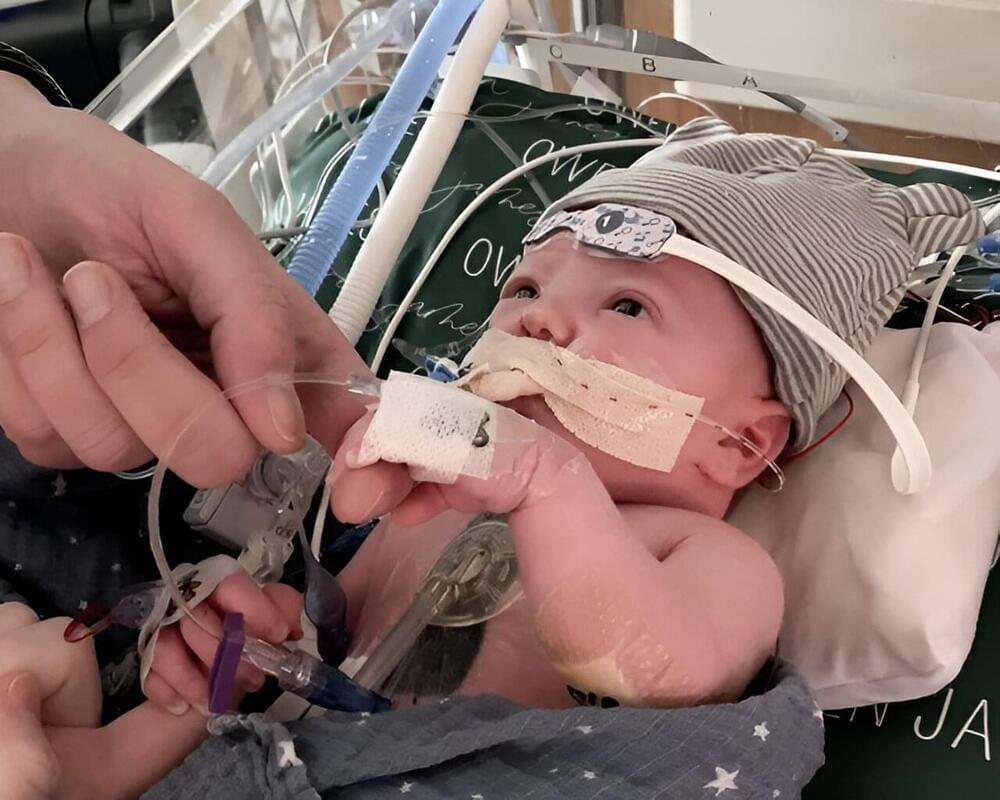The world’s first partial heart transplant has achieved what researchers have spent more than a year hoping for—functioning valves and arteries that grow along with the young patient, as hypothesized by the pioneering team behind the procedure at Duke Health.
The procedure was performed in the spring of 2022, in an infant who needed heart valve replacement. The previous standard of care—using valves that were non-living—would not grow along with the child, requiring frequent replacement, entailing surgical procedures that carry a 50% mortality rate.
A study led by Duke Health physicians, appearing online Jan. 2 in the Journal of the American Medical Association (JAMA), found that the new manner of valve procurement used during the partial heart transplant led to two well-functioning valves and arteries that are growing in concert with the child as if they were native vessels.
